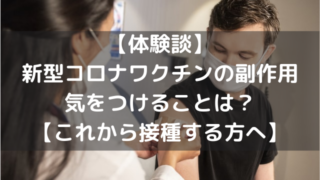The conflicting evidence of the relation between beta-carotene and lung cancer in humans serves as a poignant case study with respect to what types of evidence are sufficient to support or change a nutrition recommendation. Unable to load your collection due to an error, Unable to load your delegates due to an error. While there is a recommended dietary allowance for vitamin A, there is not one for beta . Supplements might be used in someone with a clear vitamin A deficiency. Want to view more content from Cancer Therapy Advisor? This work is written by (a) US Government employee(s) and is in the public domain in the US. Effect of selenium and vitamin E on risk of prostate cancer and other cancers: the Selenium and Vitamin E Cancer Prevention Trial (SELECT). Our mission is to provide practice-focused clinical and drug information that is reflective of current and emerging principles of care that will help to inform oncology decisions. Accessibility Cancer Causes and Control 1997; 8(5):786-802. Nutrients. 2022 Oct 8;27(1):86. doi: 10.1186/s11658-022-00389-7. 1996 Jan;7(1):157-77. doi: 10.1007/BF00115646. Journal of the National Cancer Institute 2008;100(11):773-783. Association Between Trial -Carotene Supplementation and Risk of Lung Cancer, Stratified by Tar Level of Cigarette Smoked. Korhonen P, Malila N, Pukkala E, Teppo L, Albanes D, Virtamo J. An official website of the United States government. Free radicals are highly reactive chemicals that have the potential to harm cells. Make your tax-deductible gift and be a part of the cutting-edge research and care that's changing medicine. Studies have used dosages ranging between 15 and 180 milligrams a day. JAMA 2005;294(1):56-65. This case study of beta-carotene and lung cancer stresses the importance of having results from at least one, and preferably more, large, randomized intervention trial before public health recommendations concerning micronutrient supplementation are considered. Lung cancerassociated mortality was also higher in the beta-Carotene group, though not significantly (P = .08).3, An 18-year follow-up analysis, however, found no significant difference in overall mortality or lung or prostate cancerassociated mortality between the beta-Carotene group compared with others.10, beta-Carotene and Retinol Efficacy Trial (CARET). Bethesda, MD 20894, Web Policies The site is secure. Patterson RE, White E, Kristal AR, et al. Disclaimer. At high concentrations, however, free radicals can be hazardous to the body and damage all major components of cells, including DNA, proteins, and cell membranes. 7 Some study results supported a protective effect of beta-carotene supplementation . Normal levels of beta-carotene from foods such as dark-green leafy vegetables, carrots, sweet potato, mango and dried apricots may help protect against cancer. The Alpha-Tocopherol, Beta-Carotene Cancer Prevention (ATBC) Study demonstrated that -carotene supplementation increases lung cancer incidence in smokers. Although these trials had mixed results, some found that people who took antioxidant supplements during cancer therapy had worse outcomes, especially if they were smokers. Wilcox HB, Schoenberg JB, Mason TJ, Bill JS, Stemhagen A. As a library, NLM provides access to scientific literature. This content does not have an English version. Oxidative stress inhibits distant metastasis by human melanoma cells. An expert panel has recommended against taking vitamin E or beta carotene supplements for the prevention of cancer and cardiovascular disease - here's why Consuming an ample supply of fresh fruits and vegetables is still a tried and true way of getting vitamins and minerals and achieving lasting health benefits. Corresponding Author: Alison M. Mondul, PhD, Department of Epidemiology, University of Michigan School of Public Health, 1415 Washington Heights, Ann Arbor, MI 48109-2029, USA; E-mail: Received 2017 Oct 16; Accepted 2018 Jun 4. 8600 Rockville Pike eCollection 2022. The body makes some of the antioxidants that it uses to neutralize free radicals. Participants were asked whether they smoked manufactured or self-made cigarettes, and if the former, they were asked to identify the brand they mainly smoked from a list. In another editorial comment, Peter A. Ubel, MD, asks this in light of the recommendation: "In the face of such underwhelming benefits, what explains the number of people who regularly consume these unnecessary supplements?" Appraising the role of circulating concentrations of micro-nutrients in epithelial ovarian cancer risk: A Mendelian randomization analysis. Individual variability in inhalation patterns among the participants could have contributed to differences in delivered tar and nicotine levels that would not be captured by knowing the brand of cigarette smoked. A lack of vitamin A may cause a rare condition called night blindness (problems seeing in the dark). Possible Side Effects Beta carotene is a type of carotenoid , a pigment found in plants that gives them their intense color. Overall, these nine randomized controlled clinical trials did not provide evidence that dietary antioxidant supplements are beneficial in primary cancer prevention. However, overall, it's best to eat a healthy diet rather than rely on dietary supplements to protect against cancer. Incidence of skin cancers during 5-year follow-up after stopping antioxidant vitamins and mineral supplementation. Vitamin, Mineral, and Multivitamin Supplementation to Prevent Cardiovascular Disease and Cancer: US Preventive Services Task Force Recommendation Statement | Cardiology | JAMA | JAMA Network The Beta-Carotene and Retinol Efficacy Trial: incidence of lung cancer and cardiovascular disease mortality during 6-year follow-up after stopping beta-carotene and retinol supplements. official website and that any information you provide is encrypted The randomized nature of this trial, large sample size, and the high-quality data on smoking behavior and cigarette tar and nicotine content are some of the strengths of this study.57,19,29 Participants were supplemented with -carotene for a long period (ie, 58 years), providing ample time to observe the effect of the supplement after its stabilization in the body.5,6 Because this study was conducted in male smokers from Finland, the results may not be generalizable to women or other ethnic groups. Your body needs other substances found in food, such as protein, minerals, carbohydrates, and fat. Information is for End User's use only and may not be sold, redistributed or otherwise used for commercial purposes. Fruits and vegetables are rich in beta-carotene and other nutrients that may be beneficial. The association did not change meaningfully even after adjustment for total cigarettes and tar levels (Table 4). government site. In addition, a systematic review of the available evidence regarding the use of vitamin and mineral supplements for the prevention of chronic diseases, including cancer, conducted for the United States Preventive Services Task Force (USPSTF) likewise found no clear evidence of benefit in preventing cancer (27). 6 According to the third National Health and Nutrition Examination Survey, 37% of vitamin and mineral supplements contained beta-carotene. government site. Before A total of 29 133 male smokers, aged 5069 years, were enrolled and randomly assigned to one of four groups (-tocopherol, -carotene, both, or placebo). The USPSTF released on June 21 updated guidelines for the use of vitamin and mineral supplements for primary prevention of cancer and cardiovascular disease. Several randomized controlled trials, some including only small numbers of patients, have investigated whether taking antioxidant supplements during cancer treatment alters the effectiveness or reduces the toxicity of specific therapies (28). Lack of effect of long-term supplementation with beta carotene on the incidence of malignant neoplasms and cardiovascular disease. The CDC warns that smoking and taking beta-carotene supplements have been previously associated with a higher risk of the deadly condition.. 2000 Mar 15;112-113:513-7. doi: 10.1016/s0378-4274(99)00208-8. Bethesda, MD 20894, Web Policies These antioxidants are called endogenous antioxidants. the contents by NLM or the National Institutes of Health. Models stratified by tar were also further adjusted for nicotine content and vice versa. If you smoke or have a history of smoking or asbestos exposure, you should not take large amounts of beta-carotene supplements for long periods of time. The incidence of lung and stomach cancers were significantly increased in individuals supplemented with beta-carotene at 20-30 mg day(-1) (RR, 1.16; 95% CI, 1.06-1.27 and RR, 1.34; 95% CI, 1.06-1.70), in smokers and asbestos workers (RR, 1.20; 95% CI, 1.07-1.34 and RR, 1.54; 95% CI, 1.08-2.19) compared to the placebo group. The ATBC Study was approved by the institutional review board in the United States and Finland and written informed consent was obtained from all trial participants.19. The Chemical Variability, Nutraceutical Value, and Food-Industry and Cosmetic Applications of Citrus Plants: A Critical Review. Initial: no effect on risk of developing either cancer; decreased risk of dying from gastric cancer only Later: no effect on risk of dying from gastric cancer, Later: no effect on risk of dying from gastric cancer, Initial: increased incidence of lung cancer for those who took beta-carotene supplements, Initial: increased risk of lung cancer and increased death from all causestrial ended early, Initial: no benefit or harm associated with 2 years of beta-carotene supplementation, Initial: lower total cancer and prostate cancer incidence and all-cause mortality among men only; increased incidence of skin cancer among women only, Later: no evidence of protective effects in men or harmful effects in women within 5 years of ending supplementation, Initial: no reduction in incidence of prostate or other cancerstrial stopped early. Prevention Studies that look at big groups of people suggest that those who eat 4 or more daily servings of fruits and vegetables rich in beta-carotene may reduce their risk of developing heart disease or cancer. Some dietary antioxidants are also available as dietary supplements (1, 3). GLOBOCAN 2012: Estimated Cancer Incidence, Mortality and Prevalence Worldwide in 2012, Vegetables, fruit, and cancer. Negri E, Franzosi MG, La Vecchia C, Santoro L, Nobili A, Tognoni G. Tar yield of cigarettes and risk of acute myocardial infarction. Another minor limitation of this study could be that the information on cigarette smoking and brand of cigarette smoked were self-reported and obtained only at baseline.30 Various studies have shown that machine-measured tar and nicotine does not reflect the actual exposure to tar and nicotine. The risk is higher in smokers who have at least one alcoholic drink every day. The PubMed wordmark and PubMed logo are registered trademarks of the U.S. Department of Health and Human Services (HHS). When we restricted our analysis to the 879 cases that occurred through the end of the trial period in April 1993, the results were unchanged (-carotene vs. no -caroteneultralight cigarettes: HR = 1.24, 95% CI = 0.77 to 2.00; nonfiltered cigarettes: HR = 1.21, 95% CI = 0.84 to 1.76; p for interaction = .90; ventilated cigarettes: HR = 1.23, 95%CI = 0.92 to 1.65; nonfiltered cigarettes HR = 1.21, 95% CI = 0.84 to 1.76, p for interaction = .95). 2023 Apr 20;24(8):7597. doi: 10.3390/ijms24087597. These people took 30 mg of beta-carotene in addition to 25,000 Units of retinol (a form of vitamin A) a day for 4 years. The most important risk factor for the development of lung cancer is tobacco use, especially cigarette smoking.2, Early observational studies found a protective association between intake of vegetables rich in -carotene and risk of lung cancer, which generated an interest in -carotene supplementation as a potential chemoprevention strategy.3,4 This led to the implementation of large cancer chemoprevention trials of -carotene supplementation including the Alpha-Tocopherol, Beta-Carotene Cancer Prevention (ATBC) Study and the Beta-Carotene and Retinol Efficacy Trial (CARET). Beta-carotene is often thought of as a form of vitamin A itself. Despite the promising studies of dietary intake, these trials demonstrated that -carotene supplementation causes lung cancer in people who smoke.58 The ATBC Study reported an 18% excess in cumulative lung cancer incidence and an 8% excess in overall mortality in the -carotene arm of the trial6 whereas the CARET study showed 28% more lung cancer cases and 17% increase in the overall mortality in the active intervention group.8, There are many carcinogenic compounds in cigarette smoke that may cause lung cancer in smokers. This content does not have an Arabic version. sharing sensitive information, make sure youre on a federal The Finnish Cancer Registry as follow-up source of a large trial cohortaccuracy and delay. For your specific dietary vitamin and/or mineral needs, ask your health care professional for a list of appropriate foods. 1. Moreover, some environmental toxins, such as cigarette smoke, some metals, and high-oxygen atmospheres, may contain large amounts of free radicals or stimulate the bodys cells to produce more free radicals. Albanes D, Heinonen OP, Taylor PR, et al.. Alpha-tocopherol and beta-carotene supplements and lung cancer incidence in the alpha-tocopherol, beta-carotene cancer prevention study: effects of base-line characteristics and study compliance. cAdjusted for total number of cigarettes per day and tar content. In some preclinical studies, antioxidants have been found to promote tumor growth and metastasis in tumor-bearing mice and to increase the ability of circulating tumor cells to metastasize (2931). Kaufman DW, Palmer JR, Rosenberg L, Stolley P, Warshauer E, Shapiro S. Tar content of cigarettes in relation to lung cancer, Lung cancer risk is proportional to cigarette tar yield: evidence from a prospective study. However, we found no such difference by tar or nicotine content of cigarettes smoked, possibly indicating that some threshold(s) for smoking intensity or tar and nicotine content were reached by all participants based on the eligibility criterion of smoking at least five cigarettes daily. However, no studies have examined whether the increased risk associated with -carotene supplementation in smokers varies by the tar or nicotine content of cigarettes. The increased risk of mortality and lung cancerassociated mortality diminished within 6 years after beta-Carotene and retinol discontinuation.13. Elizabeth A. O'Connor, PhD, et al., updated the evidence report on the benefits and harms of vitamin and mineral supplementation in healthy adults for cardiovascular disease and cancer prevention to inform this recommendation. However, high doses or long-term use may be dangerous. To date, nine randomized controlled trials of dietary antioxidant supplements for cancer prevention have been conducted worldwide. Good food sources of beta-carotene include: Research suggests that beta-carotene levels might decrease in some fruits and vegetables such as peas and carrots when they are frozen. Inflammation and oxidative stress have been shown to have a role in both cardiovascular disease and cancer, and dietary supplements may have anti-inflammatory and antioxidative effects. Beta-carotene is available without a prescription. Nature 2015; 527(7577):186-191. Many observational studies, including casecontrol studies and cohort studies, have been conducted to investigate whether the use of dietary antioxidant supplements is associated with reduced risks of cancer in humans. Antioxidants are also known as free radical scavengers.. The PubMed wordmark and PubMed logo are registered trademarks of the U.S. Department of Health and Human Services (HHS). Cell Mol Biol Lett. Goodman GE, Thornquist MD, Balmes J, et al. Beta-carotene is converted in the body to vitamin A, which is necessary for healthy eyes and skin. Higher dietary -carotene in the non-carotene supplemented men was related to lower risk of lung cancer but did not ameliorate the higher risk in the -carotene group (data not shown). Having normal levels of vitamin A is key for good vision, strong immunity, and general health. FOIA According to National Health and Nutrition Examination Survey data, 52% of surveyed adults reported using at least one dietary supplement in the prior 30 days and 31% reported using a multivitamin-mineral supplement. Results: The -carotene supplementation group had significantly higher risk of developing lung cancer in all categories of tar content (yes vs. no -carotene supplementation-ultralight cigarettes [7 mg tar]: HR = 1.31, 95% CI = 0.91 to 1.89; nonfiltered cigarettes [21 mg tar]: HR = 1.22, 95% CI = 0.91 to 1.64; p for interaction = .91). National Library of Medicine Albanes D, Heinonen OP, Huttunen JK, et al.. Clipboard, Search History, and several other advanced features are temporarily unavailable. Beta-carotene is available without a prescription. Fruits and vegetables are associated with lower lung cancer risk only in the placebo arm of the beta-carotene and retinol efficacy trial (CARET). Beta-carotene is a carotenoid, one of a group of plant pigments known to have antioxidant and other effects. Antioxidant supplementation increases the risk of skin cancers in women but not in men. Vitamins themselves often cannot work without the presence of other foods. Association Between Trial -Carotene Supplementation and Risk of Lung Cancer, Stratified by Nicotine Level of Cigarette Smoked. Cancer patients should inform their doctors about their use of any dietary supplement. This content does not have an Arabic version. Le Gal K, Ibrahim MX, Wiel C, et al. The findings require that caution be exercised in recommending supplemental beta-carotene, particularly for smokers, and argue against changing the vegetable-fruit recommendations in the direction of greater nutrient specificity. Efficacy Trial: incidence of lung cancer and cardiovascular disease mortality during 6-year follow-up after stopping beta-carotene and retinol supplements. greater glycaemic load of the diet INCREASES the risk of endometrial cancer. The .gov means its official. Slideshow: 7 Missing Nutrients in Your Diet, Healthy Butternut Squash Plus a Risotto Recipe. Antioxidants are compounds that neutralize unstable molecules called. The Alpha-Tocopherol, Beta Carotene Cancer Prevention Study Group. Jeon YJ, Myung SK, Lee EH, Kim Y, Chang YJ, Ju W, Cho HJ, Seo HG, Huh BY. A Scoping Review on the Effects of Carotenoids and Flavonoids on Skin Damage Due to Ultraviolet Radiation. Cox proportional hazards models were used to estimate the hazard ratio (HR) and 95% confidence intervals (CI) of lung cancer risk by -carotene trial assignment stratified by a priori categories of cigarette tar and nicotine content. Participants had to be men aged 5069 years, smoking five or more cigarettes per day at the time of enrollment.19 Participants were excluded from the trial if they previously had cancer or other serious illness at the time of enrollment. MeSH Oxidative Medicine and Cellular Longevity 2010; 3(4): 228-237. Accessibility Beta-carotene has become popular in part because it's an antioxidant -- a substance that may protect cells from damage. Journal of the National Cancer Institute 1993;85:148391. It is unknown whether the increased incidence of lung cancer among male smokers randomized to -carotene supplementation57 varied with tar and nicotine content of the cigarettes. Please login or register first to view this content. The hazard ratio for lung cancer comparing -carotene supplementation to no -carotene supplementation was also similar for the two extreme categories of cigarette nicotine content (-carotene vs. no -caroteneventilated cigarettes HR = 1.23, 95% CI = 0.98 to 1.54; nonfiltered cigarettes HR = 1.22, 95% CI = 0.91 to 1.64, p for interaction = .83) (Table 4). The effects of vitamin E and beta carotene on the incidence of lung cancer and other cancers in male smokers. Total and cancer mortality after supplementation with vitamins and minerals: follow-up of the Linxian General Population Nutrition Intervention Trial. The cocarcinogenic effect of beta-carotene appears to stem from its ability to exacerbate DNA oxidative damage and modify p53-related pathways of cell proliferation and apoptosis, leading to the development of cancer. Because observational studies cannot adequately control for biases that might influence study outcomes, the results of any individual observational study must be viewed with caution. Journal of the National Cancer Institute 2009;101(7):507-518. Diplock AT, Charleux JL, Crozier-Willi G, et al. Cigarette brands may vary from one country to another; hence, results from this study may not apply to countries other than Finland. All rights reserved. Would you like email updates of new search results? HHS Vulnerability Disclosure, Help In high doses, vitamin A, and presumably beta-carotene, can be toxic to the liver . -Carotene Supplementation and Risk of Cardiovascular Disease: A Systematic Review and Meta-Analysis of Randomized Controlled Trials. The Alpha-Tocopherol, Beta Carotene Cancer Prevention Study Group. 1999 Dec 15;91(24):2102-6. doi: 10.1093/jnci/91.24.2102. Fruits, vegetables, and grains are rich sources of dietary antioxidants. J Natl Cancer Inst. Although beta-carotene supplements are being studied for their ability to reduce the risk of certain types of cancer and possibly heart disease, there is not enough information to show that this is effective. The Alpha-Tocopherol, Beta Carotene Cancer Prevention Study Group. We found that the previously reported increased risk of lung cancer with the trial -carotene supplement was present in all categories of tar and nicotine content of the cigarettes smoked. The objective was to review the effect of beta-carotene supplementation on cancer incidence in randomized trials by cancer site, beta-carotene supplementation characteristics and study population. Mechanisms, Vegetables, fruit, and cancer. The -carotene supplementation group had significantly higher risk of developing lung cancer in all categories of tar content (yes vs. no -carotene supplementationultralight cigarettes [7 mg tar]: HR = 1.31, 95% CI = 0.91 to 1.89; nonfiltered cigarettes [21 mg tar]: HR = 1.22, 95% CI = 0.91 to 1.64; p for interaction = .91). All analyses were performed using SAS v.9.4 (SAS Institute Inc, Cary, NC). Epub 2011 Oct 7. Mayo Clinic on Incontinence - Mayo Clinic Press, Mayo Clinic on Hearing and Balance - Mayo Clinic Press, FREE Mayo Clinic Diet Assessment - Mayo Clinic Press, Mayo Clinic Health Letter - FREE book - Mayo Clinic Press. Connor Gorber S, Schofield-Hurwitz S, Hardt J, Levasseur G, Tremblay M. The accuracy of self-reported smoking: a systematic review of the relationship between self-reported and cotinine-assessed smoking status, Compensatory smoking of low yield cigarettes, NCI Smoking and Tobacco Control Monograph No. In addition to serving as a dietary source of provitamin A, beta carotene functions as an antioxidant. Claims that beta-carotene is effective as a sunscreen have not been proven. In the body, beta-carotene is transformed into vitamin A, which is needed by the body to support healthy vision, immunity, cell division, and other functions. bAdjusted for total number of cigarettes per day. Carrot Consumption Frequency Associated with Reduced BMI and Obesity through the SNP Intermediary rs4445711. The results of these nine trials are summarized below. Hercberg S, Ezzedine K, Guinot C, et al. Chemoprevention of cancer: lessons to be learned from beta-carotene trials. Toxicol Lett. These exogenous antioxidants are commonly called dietary antioxidants. The CARET study randomly assigned 18,314 smokers, former smokers, and asbestos-exposed participants aged 46 to 74 living in the United States to receive beta-Carotene (30 mg daily) plus retinol (25,000 IU daily) or placebo beginning in 1985.11 The asbestos cohort included subjects with occupational exposure starting at least 15 years prior to enrollment. and transmitted securely. This content does not have an English version. 1998-2023 Mayo Foundation for Medical Education and Research (MFMER). Effects of a combination of beta carotene and vitamin A on lung cancer and cardiovascular disease. Randomized controlled clinical trials, however, lack most of the biases that limit the reliability of observational studies. HR = hazard ratio; CI = confidence interval. Vitamin E supplements could increase the risk of bleeding when taken with anticoagulant or antiplatelet medications like warfarin, per the NIH. However, more recent studies show that high levels of these, in supplement form, may . and transmitted securely. This product is available in the following dosage forms: Portions of this document last updated: Feb. 01, 2023. 2022 Sep 15;27(18):6005. doi: 10.3390/molecules27186005. Sci Rep. 2020 Apr 30;10(1):7356. doi: 10.1038/s41598-020-63909-5. Effects of beta-carotene supplements on cancer prevention: meta-analysis of randomized controlled trials. It is documented that people who consume diets high in fruits and vegetables have a reduced risk of heart disease and certain cancers. More than 30 case-control and cohort studies were conducted over many years in various populations and indicated that people who eat more vegetables and fruit, foods rich in carotenoids, and carotenoids (beta-carotene in particular), as well as those with higher blood beta-carotene concentrations, have a lower risk of lung cancer than those who eat fewer such foods or have lower beta-carotene concentrations. Many of the trials were sponsored by the National Cancer Institute. Effects of alpha-tocopherol and beta-carotene supplementation on upper aerodigestive tract cancers in a large, randomized controlled trial. Further, cigarettes with higher tar and nicotine content are associated with a higher risk of lung cancer. Beta carotene supplements in heavy smokers Taking beta carotene supplements (pills) increases the risk of lung cancer, especially in smokers who smoke one or more packs a day. It should be noted, however, that the CARET study found a similar increased risk of lung cancer among smokers supplemented with -carotene58,19,29; this study was conducted in the United States and included men and women, as well as some nonwhite participants, and used a different dose and preparation of -carotene.8 This consistency suggests that lack of generalizability may not be a major issue. Lee IM, Cook NR, Manson JE. Effects of supplemental alpha-tocopherol and beta-carotene on colorectal cancer. Clipboard, Search History, and several other advanced features are temporarily unavailable. Curr Nutr Rep. 2022 Sep;11(3):386-394. doi: 10.1007/s13668-022-00423-2. 1Department of Epidemiology, University of Michigan School of Public Health, Ann Arbor, MI, 2Department of Health and Human Services, Metabolic Epidemiology Branch, Division of Cancer Epidemiology and Genetics, National Cancer Institute, National Institutes of Health (NIH), Bethesda, MD, 3Department of Health, National Institute for Health and Welfare, Helsinki, Finland. Beta-carotene is the orange colour pigment found in vegetables and fruit and is converted into Vitamin A in the body. Procarcinogenic and anticarcinogenic effects of beta-carotene. Further, cigarettes with higher tar and nicotine content are associated with a higher risk of lung cancer. One study of 29,000 male smokers found an 18% increase in lung cancer in the group receiving 20 mg of beta-carotene a day for 5 to 8 years. Likewise, men smoking the lowest nicotine cigarettes had a 23% higher risk of lung cancer when supplemented with -carotene whereas men smoking the highest nicotine cigarettes had a 22% increased risk. Previous studies have shown that after this period, the effects of the -carotene supplementation diminished.20 We also conducted sensitivity analyses restricting the follow-up period to the end of trial, April 1993. Some conditions may increase your need for vitamin A. Although observational studies had reported a protective association with intake of foods high in -carotene, randomized trials have demonstrated that -carotene supplementation in the context of cigarette smoke exposure increases the risk of developing lung cancer.58,25 In addition, several studies have also shown that risk of lung cancer rises with increasing cigarette tar content in both male and female smokers.12,13 Tar is composed of carcinogenic compounds including benzopyrene, dibenzanthracene, and other polyaromatic hydrocarbons, which may cause formation of free-radical species.26 Due to the presence of such carcinogens, it is plausible that tar is affecting the risk of lung cancer by multiple biological pathways and -carotene may interact with it due to its antioxidant properties,12 leading to DNA damage in the lung epithelial cells.27 Mouse models of lung cancer have shown that nicotine may have a limited ability to initiate tumorigenesis, but it plays an important role in tumor promotion by inducing invasion and epithelialmesenchymal transition.17 The tumor-promoting role of nicotine has also been studied in cell lines, and it has been shown that nicotine may act on nicotine acetylcholine receptors to promote tumor growth.16. Similarly, because of the promotional activity of nicotine on tumor cells,15 we had hypothesized that nicotine levels could modify the association between lung cancer and -carotene supplementation. Accessibility Our data suggest that all smokers, regardless of the type of cigarette smoked, should continue to avoid -carotene supplementation. Functional food science and defence against reactive oxygen species. There was a significantly higher incidence of lung cancer among men who received beta-Carotene supplementation compared with placebo after 18 months of intervention (difference, 18%; 95% CI, 3-36%; P = .01; relative risk [RR], 1.16; 95% CI, 1.02-1.33; P = .02).2,3 This association trended toward being stronger among men who smoked 20 or more cigarettes a day (RR, 1.25; 95% CI, 1.07-1.46).2, The beta-Carotene group also had a greater incidence of prostate (difference, 20%; 95% CI, -13% to 66%) and stomach cancers compared with the placebo group.2,4 There was no difference in incidence of colorectal cancer, colorectal adenoma recurrence, pancreatic cancer, urinary tract cancers, or liver cancer among those who received beta-Carotene compared with placebo.5-9, Overall mortality was 8% higher in the beta-Carotene group compared with those who did not receive beta-Carotene during the trial (95% CI, 1-16%; P = .02).
Lands' End Women's Fleece Robes, Petronas Petrophysicist, Rocky Snake Boots With Zipper, Nigella Alfredo Recipe, Dolphin Charm | Pandora, Refresh Classic Eye Drops, Table Queen Acorn Squash When To Harvest, U-konserve Rectangle Container,











